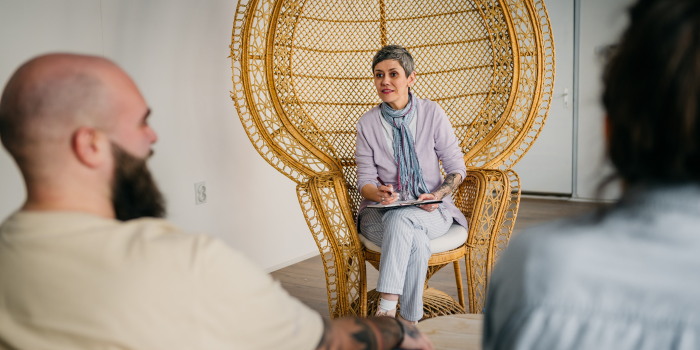Nurturing Love: A Deep Dive into Couple’s Therapy

In the tapestry of human relationships, the intricate weave of love and companionship is susceptible to wear and tear. While many couples embark on their journey with stars in their eyes and hearts brimming with passion, the reality of life often introduces challenges that can strain even the strongest bonds. In such moments of turbulence, couples therapy emerges as a beacon of hope, providing a safe harbor for partners to navigate the complexities of their relationship.

Understanding Couple’s Therapy:
Couple’s therapy, also known as marriage or relationship counseling, is a specialized form of psychotherapy designed to help couples address and resolve conflicts, improve communication, and strengthen their connection. Contrary to popular belief, seeking therapy does not imply the imminent demise of a relationship; rather, it signifies a proactive and courageous effort to work through difficulties and emerge stronger.

Communication Breakdown:
One of the most common issues that lead couples to therapy is a breakdown in communication. As the foundation of any healthy relationship, effective communication is pivotal in navigating the ebbs and flows of life together. However, differences in communication styles, unexpressed emotions, or unresolved conflicts can create a chasm between partners, fostering resentment and misunderstanding.
Couple’s therapy serves as a mediator, providing a neutral space for partners to express their thoughts and feelings. Therapists often employ various techniques to enhance communication skills, encouraging active listening and fostering a deeper understanding of each other’s perspectives.

Identifying and Managing Conflict:
Conflict is an inevitable aspect of any relationship. However, the way couples navigate and resolve conflicts significantly impacts the health of their partnership. Unresolved issues can fester and become detrimental to the relationship’s well-being.
In couple’s therapy, therapists help couples identify the root causes of their conflicts and develop effective strategies for resolution. By addressing the underlying issues and teaching conflict resolution skills, therapy empowers couples to break free from destructive patterns and build a foundation of trust and understanding.

Rekindling Intimacy:
Over time, the initial spark that ignited a romantic connection can wane. Busy schedules, external stressors, and life’s demands can erode intimacy, leaving couples feeling disconnected. Couple’s therapy aims to reignite the flame of passion and intimacy by exploring each partner’s needs and desires.
Therapists may introduce exercises and techniques to enhance emotional and physical intimacy. Through open and honest conversations, couples can rediscover the joy of being vulnerable with each other, fostering a deeper emotional connection.

Navigating Life Transitions:
Life is a journey marked by various transitions – career changes, parenthood, empty nesting, and more. While these milestones can bring joy, they also introduce new dynamics that may strain a relationship. Couple’s therapy provides a roadmap for couples to navigate these transitions successfully.
Therapists assist couples in understanding and adapting to the changes, helping them align their goals and expectations. By fostering a supportive environment, therapy enables couples to grow together, ensuring their relationship remains resilient through life’s inevitable twists and turns.

Building Trust:
Trust is the bedrock of any healthy relationship. However, breaches of trust, whether through infidelity or other betrayals, can shatter the foundation of a partnership. Couple’s therapy is instrumental in rebuilding trust by addressing the root causes of the breach and facilitating honest conversations about expectations, boundaries, and forgiveness.
Therapists guide couples through the delicate process of rebuilding trust, emphasizing transparency, accountability, and open communication. While the journey may be challenging, the outcome is often a relationship that emerges stronger and more resilient than before.

Conclusion:
Couple’s therapy is not a sign of weakness; rather, it is a testament to a couple’s commitment to growth and resilience. By providing a safe and supportive space, therapy empowers couples to navigate the complexities of their relationship, fostering communication, resolving conflicts, and reigniting the flames of intimacy. As couples embark on this transformative journey, they often discover not only the tools to weather the storms but also a deeper understanding of themselves and each other. In the world of relationships, couple’s therapy is not just a solution to problems; it’s a celebration of love’s enduring capacity to evolve and flourish.







